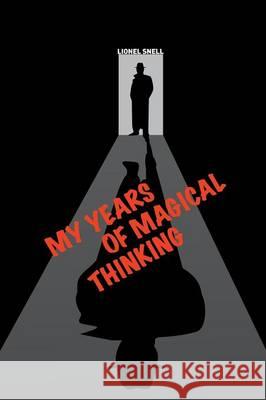My Years of Magical Thinking » książka
My Years of Magical Thinking
ISBN-13: 9780904311242 / Angielski / Miękka / 2017 / 330 str.
My Years of Magical Thinking
ISBN-13: 9780904311242 / Angielski / Miękka / 2017 / 330 str.
(netto: 91,38 VAT: 5%)
Najniższa cena z 30 dni: 94,65 zł
ok. 16-18 dni roboczych.
Darmowa dostawa!
People are fascinated by magic but few understand it. Most would rather deny, demonise or glamorise magic rather than ever admit to thinking magically. Rationalists that are concerned by the growing popularity of alternative healing, astrology and New Age ideas, ask: "whatever happened to the Enlightenment?" The assumption is that "The Enlightenment" marked a break with a superstitious past; it was a forward leap for humanity after which any return to magical thinking would be regressive, or even impossible. But there is another, cyclic, view that sees the Enlightenment as having turned the clock back two millennia to the Classical era, the source of and inspiration for today's linear timeline, atomism, causality, science and humanism. But classical rationalism itself went into decline. The Roman era saw a resurgence of magical thinking that laid the foundations for alchemy, astrology, alternative healing, and much of today's magical ideas and practices. Pontius Pilate famously asked "what is truth?" and postmodernist philosophers are raising similar questions two thousand years later. So is the revival of magical thinking just a natural evolution of thought, to be expected after five centuries of rationalism? The author was brought up in the materialist 1950s and educated in that sceptical Enlightenment tradition to become a Cambridge mathematics graduate. Despite that, he became increasingly interested in magic and the occult and is now recognised as an authority on the subject. So how is it possible to shift from our knowledge of scientific reality to an acceptance of magic? The book describes the author's own subjective experience of how that evolved over his lifetime. Parts One and Two outline some of the important influences on his thinking and Parts Three and Four expand on CP Snow's idea of two cultures (Art and Science) to propose four cultures: Art, Science, Religion and Magic. Part Five looks at the conflicts and misunderstandings between cultures and reasons why magic gets a raw deal or is simply denied as a culture. Part Six summarises the case and the Part Seven looks at contemporary trends and assumptions to show that the rise in magical thinking goes far deeper than just the visible popularity of astrology columns and alternative healing. A penultimate chapter provides practical suggestions for those willing to explore the possible value of magical thinking.











